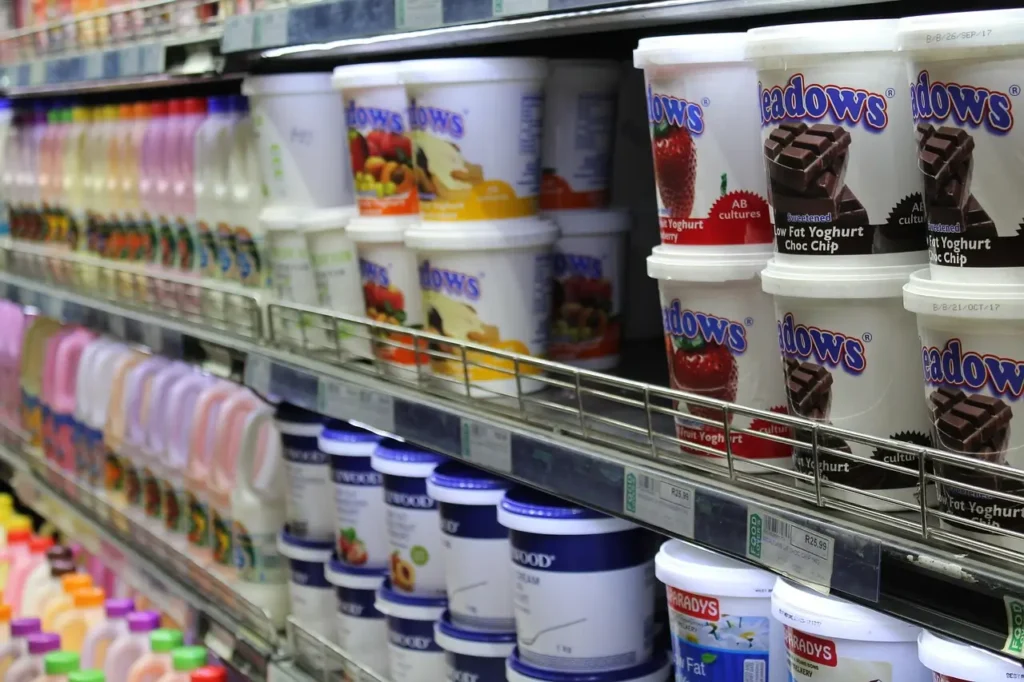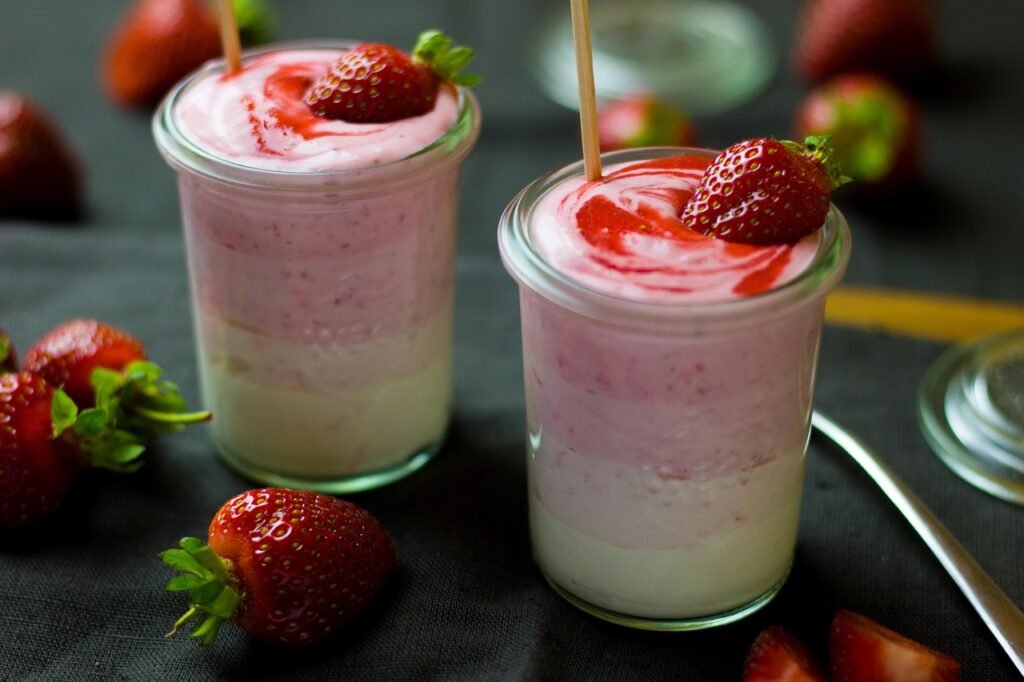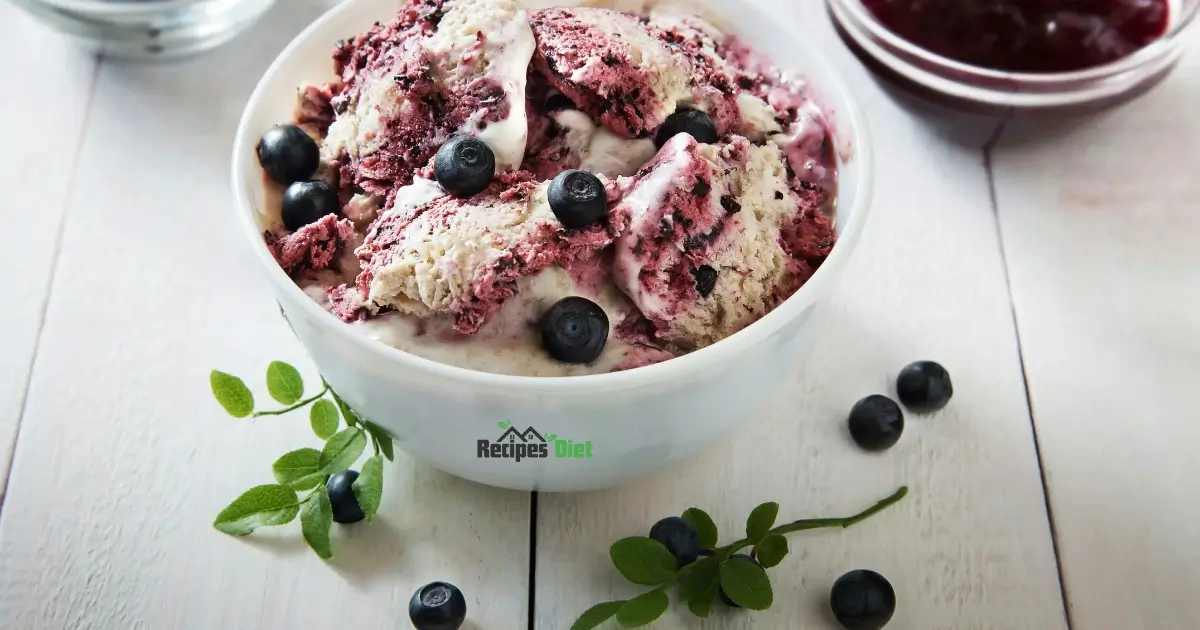Top 7 Low Calorie Frozen Yogurt Brands That Actually Taste Great
Did you know that 78% of Americans who try to switch to “healthier” desserts abandon them after just two weeks because of disappointing taste? Discover the Top 7 low calorie frozen Yogurt Brands That Taste Great and enjoy guilt-free indulgence without sacrificing flavor. The frozen yogurt industry has evolved dramatically, with brands creating low-calorie options rival premium ice cream in taste satisfaction while offering significant nutritional benefits. Whether managing weight goals or simply seeking healthier alternatives to traditional ice cream, these carefully selected frozen yogurt brands deliver on taste and nutrition.
Table of Contents
The Science Behind Low-Calorie Frozen Yogurt
Low-calorie frozen yogurt achieves its nutritional profile by carefully balancing ingredients and production techniques. Unlike regular ice cream, which typically contains 250-350 calories per serving, quality low-calorie frozen yogurts average just 100-150 calories while maintaining a creamy texture and satisfying flavor. This caloric reduction comes from:
- Lower fat content (typically 0-3g compared to 14-16g in premium ice cream)
- Strategic use of natural sweeteners and sugar alternatives
- Higher air content (overrun) in the churning process
- Live and active cultures that contribute to tanginess without added calories
Probiotics in many low-calorie frozen yogurt brands also offer digestive benefits that traditional desserts can’t match.
What Makes a Frozen Yogurt “Low Calorie”?
For our rankings, we’ve defined low calorie frozen yogurt as containing under 150 calories per 1/2 cup serving. This benchmark represents approximately 40% fewer calories than traditional ice cream while delivering a satisfying taste and texture. We’ve evaluated over 30 nationally available brands using the following criteria:
- Caloric content per serving
- Overall taste satisfaction (based on blind taste tests)
- Ingredient quality and transparency
- Probiotic content
- Availability in major retailers
Now, let’s explore the seven brands that have mastered the balance between taste and nutrition.


Top 7 Low Calorie Frozen Yogurt Brands
1. Yasso Greek Yogurt Bars
Calories: 80-120 per bar.
Key Features: High protein content (5-6g), no artificial sweeteners, authentic Greek yogurt base.
With their Greek yogurt bars that taste remarkably similar to premium ice cream, Yasso transformed the frozen yogurt industry. Their mint chocolate chip variety consistently ranks among the top choices in blind taste tests, with tasters often unable to distinguish it from higher-calorie competitors.
What sets Yasso apart is its commitment to using real Greek yogurt rather than yogurt powders or substitutes. The result is a protein-rich treat with authentic tangy notes that perfectly complement its flavor profiles. Its portion-controlled bar format also helps with mindful eating.
Best Flavors: Mint Chocolate Chip, Sea Salt Caramel, Coffee Chocolate Chip.
2. Enlightened
Calories: 70-100 per 1/2 cup
Key Features: High fiber content, erythritol and monk fruit sweeteners, minimal sugar alcohols.
Enlightened has perfected the science of creating ultra-low-calorie frozen yogurt that maintains exceptional creaminess. Their unique fiber blend creates a satisfying mouthfeel without the chalky aftertaste typical in many diet frozen desserts.
Their innovative flavor combinations, like Cold Brew Coffee and Red Velvet, consistently outperform competing brands in taste tests. Enlightened also offers dairy-based and dairy-free options, making them accessible to broader dietary needs.
Best Flavors: Cold Brew Coffee, Red Velvet, Birthday Cake.
3. Halo Top Frozen Yogurt
Calories: 90-120 per 1/2 cup
Key Features: Higher protein content than most competitors, stevia-sweetened, wide distribution.
While primarily known for its ice cream alternatives, Halo Top’s dedicated frozen yogurt line deserves recognition for successfully balancing probiotic benefits with truly satisfying flavor profiles. Their frozen yogurt contains 5-6g of protein per serving and uses prebiotic fiber to enhance texture without artificial thickeners.
Nutritionists particularly appreciate Halo Top’s moderate approach to sugar alcohols, which helps prevent the digestive discomfort sometimes associated with other low-calorie frozen desserts.
Best Flavors: Vanilla Bean, Strawberry, Chocolate.
4. Skinny Cow
Calories: 110-140 per serving
Key Features: Rich, creamy texture; portion-controlled packaging; mainstream flavor profiles.
Skinny Cow has perfected the art of producing frozen yogurt that tastes decadent while keeping calories impressively low. Their frozen yogurt sandwiches and cups consistently rate highest for “satisfaction factor” in consumer surveys, making them ideal for those transitioning from regular ice cream to healthier options.
What distinguishes Skinny Cow is their focus on mainstream flavors executed perfectly rather than exotic combinations. This makes them particularly appealing to families with varied taste preferences.
Best Flavors: Vanilla Bean Sandwiches, Chocolate Truffle Bars, Caramel Cone.
5. Breyers Delights
Calories: 90-130 per 1/2 cup
Key Features: Widely available, familiar brand name, balanced sweetness profile.
Breyers brings decades of frozen dessert expertise to their Delights frozen yogurt line. Their strength lies in creating products that closely mimic the texture and taste experience of traditional ice cream while significantly reducing calories and fat.
Consumer research shows that Breyers Delights has one of the highest “repeat purchase” rates among low calorie frozen yogurt brands, indicating intense satisfaction among health-conscious consumers. Their vanilla bean variety consistently outperforms competitors in blind taste tests.
Best Flavors: Vanilla Bean, Cookies & Cream, Mint Chip.
6. Stonyfield Organic Frozen Yogurt
Calories: 110-140 per 1/2 cup
Key Features: Certified organic ingredients, no artificial anything, transparent sourcing.
For consumers prioritizing organic ingredients and environmental sustainability, Stonyfield’s frozen yogurt line offers the perfect balance of clean eating and satisfying taste. Their products contain significantly more live and active cultures than most competitors, enhancing flavor and digestive benefits.
What’s remarkable about Stonyfield is its success in creating rich, creamy textures using only organic ingredients without artificial stabilizers or thickeners. Its vanilla bean variety contains 30% fewer calories than comparable premium brands, with no perceptible difference in taste satisfaction.
Best Flavors: Vanilla Bean, Gotta Have Java, After Dark Chocolate.
7. So Delicious Dairy Free Frozen Yogurt
Calories: 120-150 per 1/2 cup
Key Features: Plant-based, dairy-free, allergen-friendly.
For those avoiding dairy, So Delicious offers coconut-based frozen yogurt alternatives that outperform most dairy-free competitors in taste tests. Their proprietary culturing process creates authentic tanginess without dairy, while their coconut base provides a rich mouthfeel with fewer calories than traditional dairy ingredients.
Nutritionists frequently recommend So Delicious for its balanced sweetener approach and minimal use of processed ingredients. Their products contain some of the highest probiotic counts among commercially available frozen yogurts.
Best Flavors: Passionate Mango, Chocolate, Vanilla Bean.
Nutritional Comparison
| Brand | Calories/Serving | Protein | Sugar | Fat |
| Yasso | 80-120 | 5-6g | 6-9g | 2-2.5g |
| Enlightened | 70-100 | 5-7g | 5-8g | 2-3g |
| Halo Top | 90-120 | 5-6g | 5-7g | 2-3g |
| Skinny Cow | 110-140 | 4-5g | 8-12g | 1.5-3g |
| Breyers Delights | 90-130 | 4-5g | 7-10g | 2-4g |
| Stonyfield | 110-140 | 3-4g | 11-14g | 2-3g |
| So Delicious | 120-150 | 2-3g | 8-12g | 3-5g |
How to Choose the Best Low Calorie Frozen Yogurt
When selecting the right low calorie frozen yogurt for your needs, consider these factors:
- Dietary Goals: Focus on protein content if supporting muscle maintenance, or fiber content for satiety.
- Ingredient Sensitivity: Check sweetener types—some people prefer stevia-based products while others find erythritol more digestible.
- Probiotic Benefits: If digestive health is a priority, look for products specifically advertising live and active cultures.
- Portion Control: Consider pre-portioned options like bars or single-serve cups if managing consumption is challenging.
- Flavor Preferences: Start with familiar flavors when transitioning from premium ice cream to increase satisfaction and compliance.
Making Your Own Low Calorie Frozen Yogurt
For ultimate control over ingredients, consider making homemade low calorie frozen yogurt with this simple base recipe:
- 2 cups plain nonfat Greek yogurt (provides protein and creaminess).
- 3 tablespoons honey or maple syrup (natural sweeteners that can be adjusted).
- 1 teaspoon vanilla extract (enhances sweetness perception).
- 1 tablespoon lemon juice (activates yogurt cultures).
- Pinch of salt (enhances flavor complexity).
Combine all ingredients completely, then process in an ice cream maker following the device’s specific directions. For no-machine preparation, freeze the mixture in a shallow container, stirring vigorously every 30 minutes until set.
Common Mistakes to Avoid
When choosing low calorie frozen yogurt, be aware of these potential pitfalls:
- Ignoring Serving Sizes: Many “low calorie” claims are based on unrealistically small portions. Always check the serving size on nutrition labels.
- Falling for “Frozen Yogurt” Claims: Some products labeled as frozen yogurt contain minimal actual yogurt and miss the probiotic benefits. Look for “live and active cultures” on the label.
- Overlooking Sugar Alcohols: While not counted as sugar on labels, these can cause digestive discomfort in some individuals when consumed in large amounts.
- Ignoring Fat Content: Some brands reduce calories by adding artificial ingredients. A slightly higher calorie count with natural ingredients may be nutritionally superior.
- Expecting Ice Cream: Adjust expectations—frozen yogurt has a different flavor profile. Embrace the tangy notes rather than viewing them as a flaw.
How to Serve Low Calorie Frozen Yogurt
Elevate your low-calorie frozen yogurt experience with these serving suggestions:
- Add fresh berries for fiber, antioxidants, and natural sweetness without significantly increasing calories.
- Sprinkle with cinnamon or nutmeg to enhance sweetness perception without added sugar.
- Create parfaits with layers of frozen yogurt and fresh fruit for visual appeal and textural contrast.
- Allow the product to soften slightly before serving to enhance creaminess and flavor release.
- For special occasions, a slight drizzle (1 teaspoon) of dark chocolate provides maximum flavor impact with minimal caloric increase.
Conclusion
Low calorie frozen yogurt has evolved far beyond the tart, unsatisfying options of years past. Today’s brands have mastered the science of creating genuinely delicious products that satisfy dessert cravings while supporting health goals. Whether you prefer the protein-packed Greek yogurt bars from Yasso, the innovative flavors of Enlightened, or the organic ingredients of Stonyfield, there’s now a low-calorie frozen yogurt option that can genuinely replace traditional ice cream in your freezer.
Read Also: 10 Best Gluten Free Desserts for Summer
Remember that personal taste preferences vary significantly—what works for one person may not work for another. Consider purchasing smaller quantities of several brands from our list to discover your personal favorite. Discover the Top 7 Low Calorie Frozen Yogurt Brands That Actually Taste Great and enjoy guilt-free indulgence as part of a balanced approach to nutrition.
FAQs
Is frozen yogurt healthier than ice cream?
Premium ice cream typically has 50-60% more calories and 70-80% more fat than high-quality low-calorie frozen yogurt alternatives. Additionally, many frozen yogurt brands contain probiotics that support digestive health, a benefit not found in traditional ice cream.
Do low calorie frozen yogurts contain artificial sweeteners?
It varies by brand. Some use small amounts of artificial sweeteners, while others rely on natural alternatives like stevia, monk fruit, or reduced quantities of traditional sweeteners. Our top 7 list includes options for both preferences.
How much frozen yogurt can I eat while dieting?
Most nutrition experts recommend limiting desserts to 150-200 calories daily within a weight management plan. Most low-calorie frozen yogurts contain 70-150 calories per serving, which generally translates to one standard serving.
Will froze yogurt help me lose weight?
Switching from premium ice cream to low calorie frozen yogurt could save 100-200 calories per serving, contributing to weight loss over time. However, portion control remains essential, as does overall dietary balance.
Do the probiotics in frozen yogurt survive freezing?
Research shows that approximately 30-40% of probiotics survive freezing in quality frozen yogurt. Brands advertising “live and active cultures” typically ensure higher survival rates through specialized manufacturing processes.





2 Comments